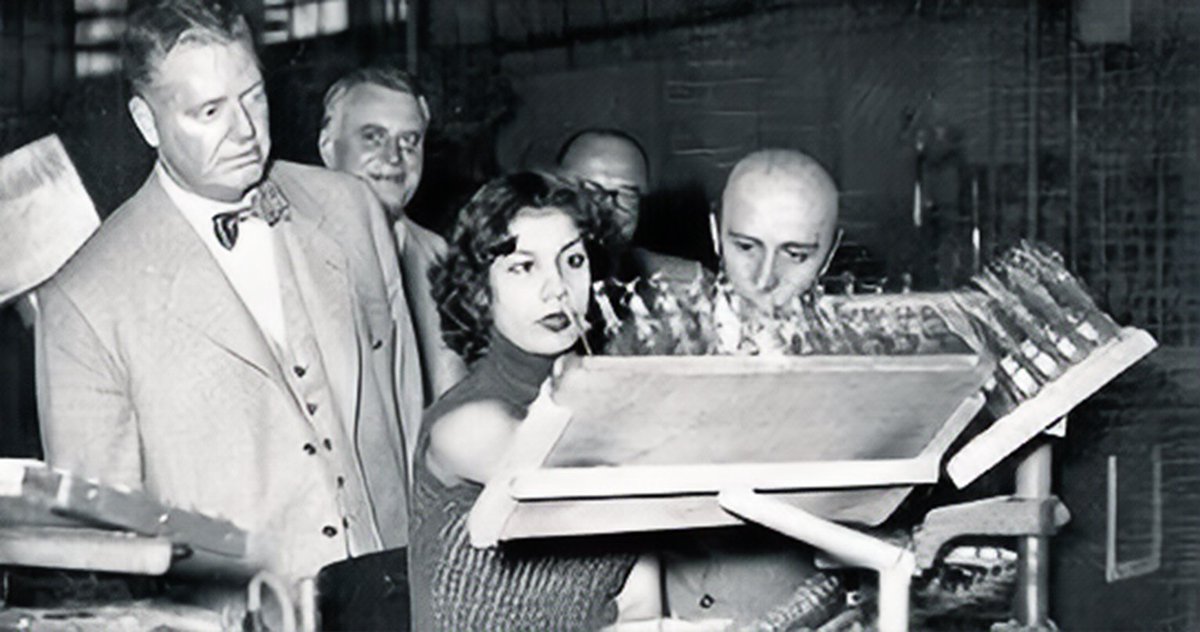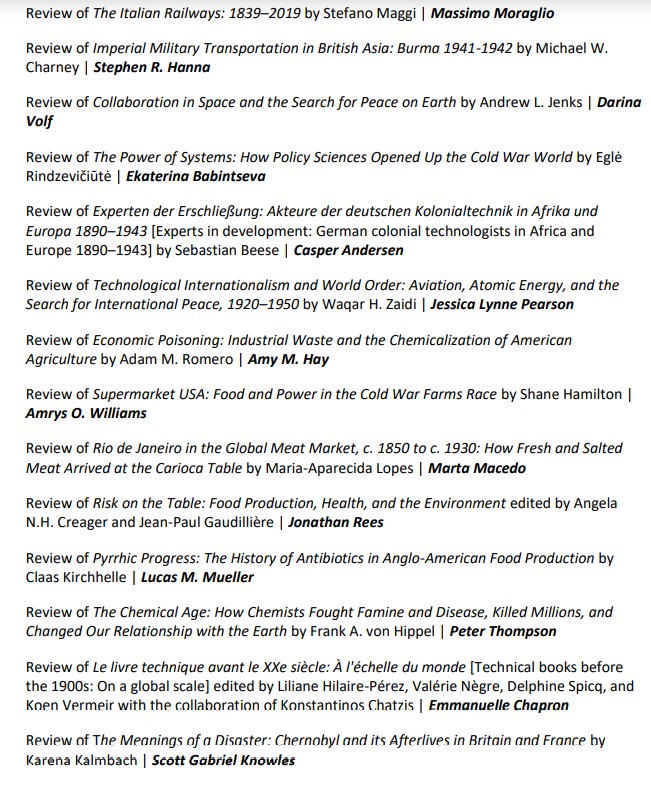We are proud to present the next issue (Number 3, July 2022) of Technology and Culture, the leading journal in the history of technology; it draws on scholarship in diverse disciplines to publish insightful pieces intended for general readers and specialists. Let's review! 

In following weeks and months we'll highlight each article more specifically and connect authors and communities on twitter when possible but this thread will be a general roundup of it all for the general #histSTM #STS #envhist #history #digitalsts #computing #mediastudies crowd
Kirill Chunikhin opens with a reflection on the cover of the July 2022 issue in "Establishing Eye Contact with One Historical Photograph"
muse.jhu.edu/article/859717
muse.jhu.edu/article/859717

Following up in "Risk and Respirators: The Hazardous Trajectories of Soviet Occupational Safety," Chunikhin asks When did gas masks start to protect workers? Can respiratory protective equipment be dangerous? Can modernity by defined by occupational safety?
This article presents the history of technological perfection of respiratory equipment in the Soviet Union. This article explores the genealogy of industrial gas masks and respirators to uncover the Soviet biopolitics of vitality which emerged after WW2.
muse.jhu.edu/article/859718
muse.jhu.edu/article/859718

Next up is @HZeavin "THIS IS WOMENSPACE”: USENET and The Fight for a Digital Backroom 1983–86" which asks how did the women's movement continue on in the early Internet, especially USENET, long after it ended? ...
Zeavin takes up a newly available and complete USENET archive to complicate feminist digital historiography, which frequently draws a direct line from the 1970s offline to the 1990s online, tracing how users fought for new spaces free from misogyny online. muse.jhu.edu/article/859719 

Then Logan Brown's "Learning to Love Computers: Useful Cinema and the Mediation of American Computing 1958–62" asks how did computerization become natural and inevitable? Brown’s article looks at the widespread production and exhibition of nontheatrical film as a ...
... rhetorical tool in the midcentury battle to computerize American society.
muse.jhu.edu/article/859720
muse.jhu.edu/article/859720

Next up, It’s 1970 and Jack Burnham is presenting art, cybernetics, and system thinking for his Software show at the Jewish Museum. @leapingrobot explores this in "Art Out of Order"
muse.jhu.edu/article/859721
muse.jhu.edu/article/859721

Following McCray, @zoudongxin explores the unknown yet worthwhile story of socialist China’s failed and forgotten technical aid in Algeria in the 1970s in "Economizing Socialist Aid: China’s Failed Surgical Plant in Algeria, 1973–80." Dongxin tells us about how Shanghai ...
industrial planners hardly escaped the trap of a supply-driven model of technical aid despite their concern about an appropriate technology for fellow developing countries.
muse.jhu.edu/article/859722
muse.jhu.edu/article/859722

Then, Tanfer Emin Tunc and Gokhan Tunc explore the opening of the Istanbul General Electric light bulb factory in 1951 as an example of early Cold War Americanization through corporate technology transfer ...
... this geopolitically important factory was GE’s first in the Near/Middle East.
muse.jhu.edu/article/859723
muse.jhu.edu/article/859723

In the last research article Konstantinos Chatzis asks in "Building Capabilities for a Transnational World: Foreign Languages at the École des Ponts et Chaussées, 1790s–1850s" how has transnational engineering knowledge circulation become effective and permanent over time? ...
... What specific mechanisms and tools have enabled such circulation? This article answers these, and other, questions!
muse.jhu.edu/article/859724
muse.jhu.edu/article/859724

First up in the "Essay" section is "Why Chuño Matters: Rethinking the History of Technology in Latin America" Alejandra Osorio explores the importance of handmade products and indigenous technologies in the history of Latin America through the history of the chuño ...
... a freeze-dried potato, was a staple of the Incas, but it is still produced today in the same way by Quechua and Aymara communities in the Andes.
muse.jhu.edu/article/859725

muse.jhu.edu/article/859725


The last essay, by Jens Ivo Engels, "Rhythm Analysis: A Heuristic Tool for Historical Infrastructure Research" asks why do we need timetables? What role do rhythms play in the operation of infrastructures? Engel's develops three ideal types to investigate forms of movement ...
... over time in technical networks. Using examples from pre-modern and industrial times, he shows that rhythms are about politics and cultural assumptions.
muse.jhu.edu/article/859726

muse.jhu.edu/article/859726


And as always we also have a veritable (and highly nutritious) medley of reviews after our research articles and essay content. Check them all out! 





Alright that is all for now! Check out all of this and MUCH more on Technology and Culture's @ProjectMUSE page:
muse.jhu.edu/issue/48143
muse.jhu.edu/issue/48143
• • •
Missing some Tweet in this thread? You can try to
force a refresh




